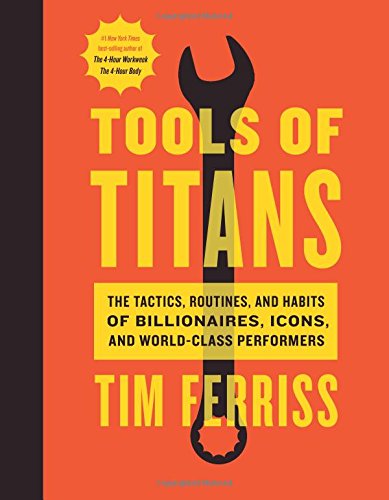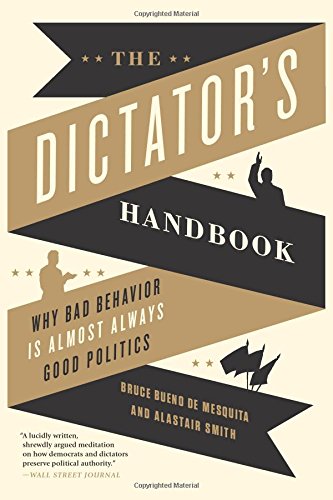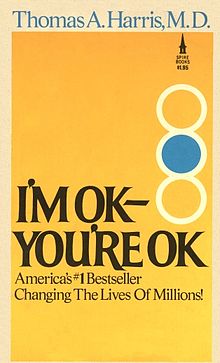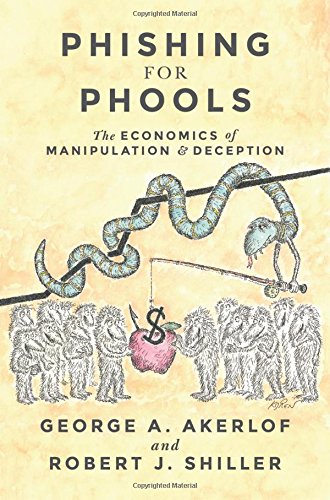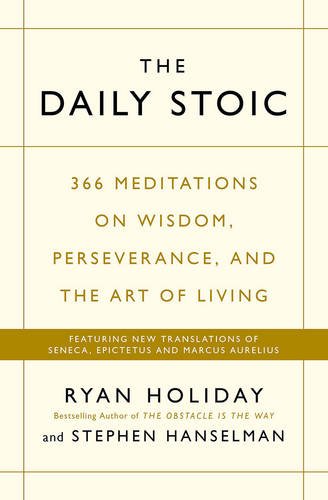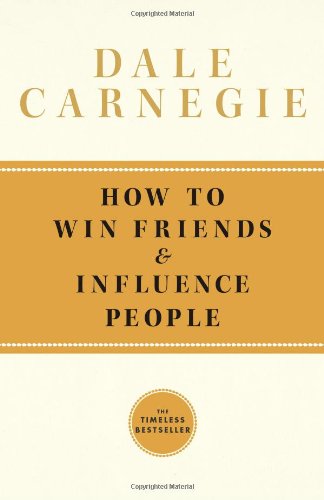Review Success is a vague concept, that everybody has their own definition of. Sometimes it means having a lot of money, or being famous, or just being respected by other experts in your field. Tools of Titans is a collection of success stories of different people, focusing on the daily habits they attribute their achievements to. The author suggests you pick and mix the advice you like while ignoring the stuff you think is stupid (which was quite a lot for me). Tools of Titans is divided into three parts, Healthy, Wealthy and Wise, which is a good thing, because these are where people have problems. The assignment of “Titans” to these categories is rather arbitrary, however, as usually many topics are discussed. Let’s have a look at each category on its own: Healthy Here is the list of additives the author and his guests recommend on a regular basis (probably not exhaustive): gelatin, beet root powder, magnesium, calcium, powdered coconut oil, branched-chain amino acids, butyric acid esters and several other ketones (disgusting stuff), metformin (a diabetes drug), lithium (an antidepressant), and psychedelic drugs like LSD or ibogaine. Feeling healthy already? Then add extended fasting, ketogenic diet (usually a medical…
Review There is a difference between the way the world is and the way the world should be. And there are reasons for this gap. Poverty, corruption and inequality all over the world can be explained by the number of people the country’s leader needs to keep power – the essential selectorate. Leaders will do everything to please their essentials, while simultaneously keep the number of essentials as low as possible. This book is a deeply cynical manifest praising the virtues of selfish, near-sighted politics. The Dictator’s Handbook starts with a bold premise: there is no functional difference between successful dictators and successful democratic leaders. The optimal strategy for both is to install policies that benefit the people they depend on, and take for themselves what is left. Both types of leaders can exercise the same corruption and reckless focus on personal gain, with the only difference being the number of people they are accountable to, their essential coalition. This point spans the entire book, being repeated ad nauseam. Democrats have to please the fraction of all voters that is necessary to elect them to power. Depending on the number of parties, faction structure and voting system this can be…
Review Psychology can be hard to write about. Unlike many other topics I present here, it is almost a science, and thus deserves a lot more attention. Also, I don’t know a thing about psychology or psychoanalysis and evaluating such a book gives me a hard time. Freud postulated the threefold mind: the id (containing desires and urges), the ego (the conscious self) and the superego (the unconscious framework of rules and ethics). Transactional analysis is built on a similar but different idea, modeling the human psyche as three ego-states, of which only one is active at a time: The Parent is filled with values (or non-values) directly adapted as a very small child. This part contains mostly unconscious instructions and ideas from “Fire is dangerous” to “Non-white people are dangerous”. The Parent can cause problems, because it cannot evaluate those ideas and instructs a person to mimic their parents. This is the source of superstition, prejudice and a lot of stupidity, and also the reason why abused children often become abusive parents. The Child is also formed at a very young age, and is where emotions and spontaneity live. It is a recording of feelings as the Parent is…
Review Apparently, a good portion of current economic theories and models are based on an idealized model of the free market, where consumers and companies have access to complete market information and only make rational decisions. As a scientist, I believe that models should describe reality in a simplified manner. Models can contain a fair amount of idealization (physicists have their pockets full of infinite rods and frictionless springs), but they are only useful if they allow predictions that can be verified in empirically. So let’s get back to the free market and look if everybody is rational and informed. Have you ever bought something you immediately regretted buying? Have you ever bought something and then found it cheaper somewhere else literally five minutes later? I did. How shocking! Sometimes, new paradigms of economic theory seem banal for normal people: we are paying too much for everything, because companies manipulate our information and desires, a process the authors refer to as “phishing”. Airport food is stupidly expensive, because we feel hungry after a long flight (or a long wait for the flight) and have no time to compare all alternatives. The same psychology made some savvy financial players make up…
Review Have you ever been to an evening event, and during polite conversation somebody suddenly steers the topic towards modern technology? And while everybody else is excitedly discussing the implications of the latest fad, you find yourself standing silently in a corner, because for you “Big Data” is your collection of adult movies on your harddrive? Do you need a shortcut to sounding like a technology “have”? This book got you covered. After steam engines, electricity and the computer revolution, Schwab sees the world in the middle of a new, fourth industrial revolution. While still based on computers, this new phase is characterised by the rapid saturation of society on all levels, and innovative use of technology. The author takes us on a tour through our modern world and highlights almost everything hot and new from the last couple of years, from 3D printing to gene sequencing, from drones to blockchain, from designer organisms to the internet of things. The nicest part is a brief overview of 23 disruptive technological trends with convenient good/bad/controversial bullet point lists, if you have too little time to read the full book. The author groups those trends into physical, digital and biological categories (because…
Review I used to associate the word “stoic” with absence of emotions and stubbornness. Apparently, I was wrong. A bit. Apparently it is all about having principles and concentrating on the things of life one can actually change (the circle of influence). Everything outside of this circle is neither good nor bad, just facts and circumstances, and one can live happily by developing an indifferent attitude towards them. The daily stoic comes in the format of an almanac, offering a short quotation by a famous greek stoic and an explanatory part offering interpretation and context. The idea is to read and meditate on a stoic teaching of the day everyday, but don’t worry, if you buy the book after January 1st you don’t need to wait a whole year to start. Although each moth has a central topic and three months are grouped around one of the key stoic principles (perception, action, will), the daily witticisms do not need to be read in order. The short format (maximum one page, sometimes only a few lines) is also makes this the ideal bathroom lecture. So Marcus Aurelius, Epictetus and Seneca, the most quoted stoics of the book, came from very different places…
Review When a book is attributed as an influence by famous and infamous people, and continues to sell this well, we can assume, that there is something to it. But how can a book this ancient be relevant today? Carnegie tries to answer the age-old question of human interaction: how can I get the other person to do what I want? “How to make friends…” is written as a workbook with four major topics (basic techniques, how to make people like you, convincing people, be a leader), each one presented as a series of short lectures. At a glance, the lessons are simplistic, and always iterating on the central themes: make other people feel important, understood and respected. If you look closer, however, then you see that this is all you actually need. Find out what your counterpart wants and needs to feel good, then give it to them and they will reciprocate. People like to create their own narratives, and you will win them by giving them the opportunity to be the hero of the story. This is the fundamental trick to improve all your human interactions, that stays valid in the digital age, maybe even more. As communication…
Review If someone promised to show you the way to break out of your mediocrity and get rich and successful, would you want to listen to him? What if he wanted to spent some time bragging and belittling you first? Still? Now imagine the actual advice is blindingly obvious and insultingly vague. If you would still feel good about it, this book is for you. I bought the book for some out-of-the-box financial tips by an exceptional financial leader, as stated on the backside. Disappointingly, only about a third of the pages is actually about that. Brace yourself for never heard-of advice: New cars lose value very quickly. Houses are expensive, maybe renting suits you better. All debt has to be payed off at some point. Spend less than you earn. Start your own business, then you can work exclusively for your own wealth. Great advice, inspiring, maybe a bit superficial and not exactly the radical paradigm-shifting insights we were promised. Ok, so much for the good part of the book… What is the rest about? Insults and bragging. Many pages of Investment Punk are filled with rants against the middle class, usually in the form of strawman arguments with…
